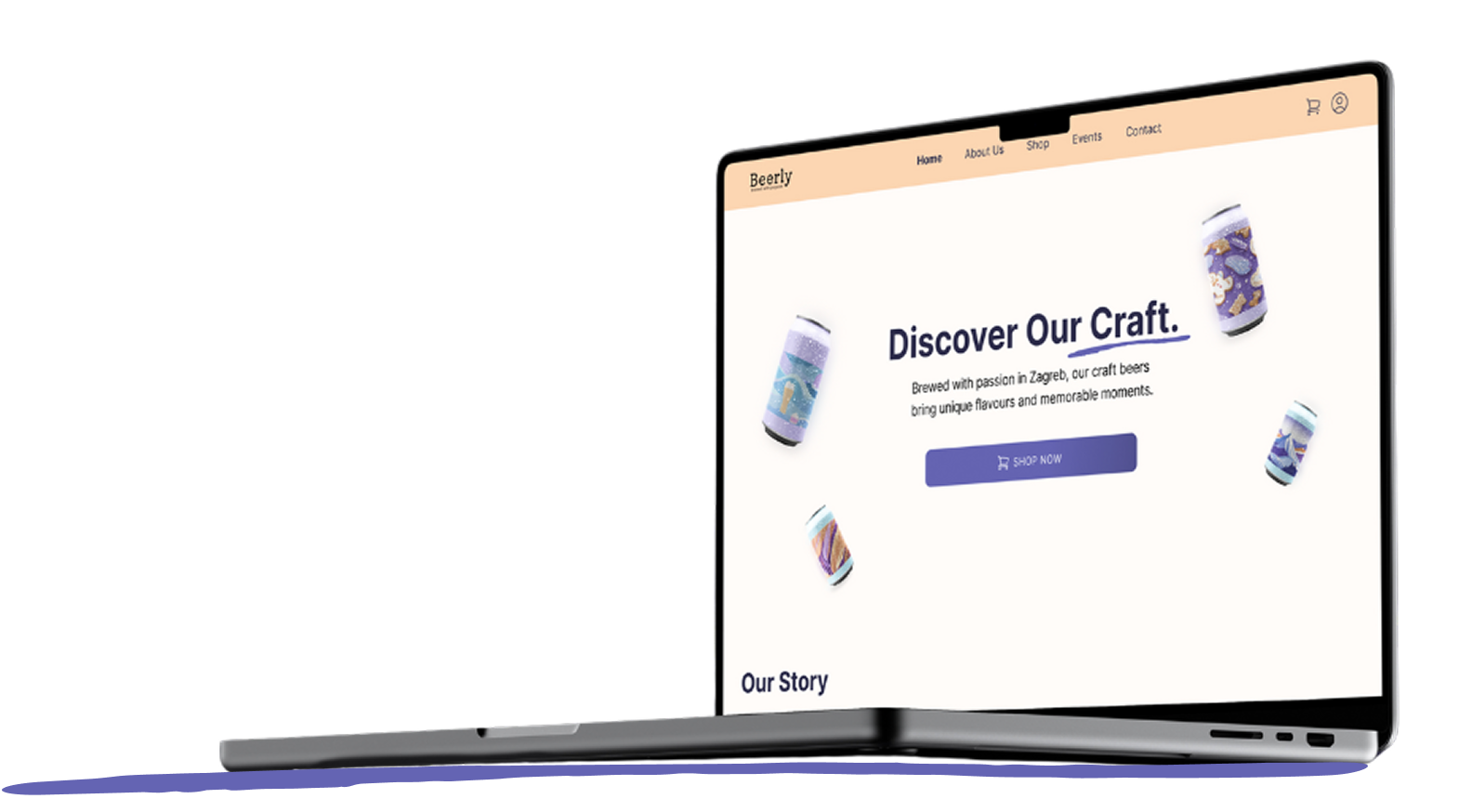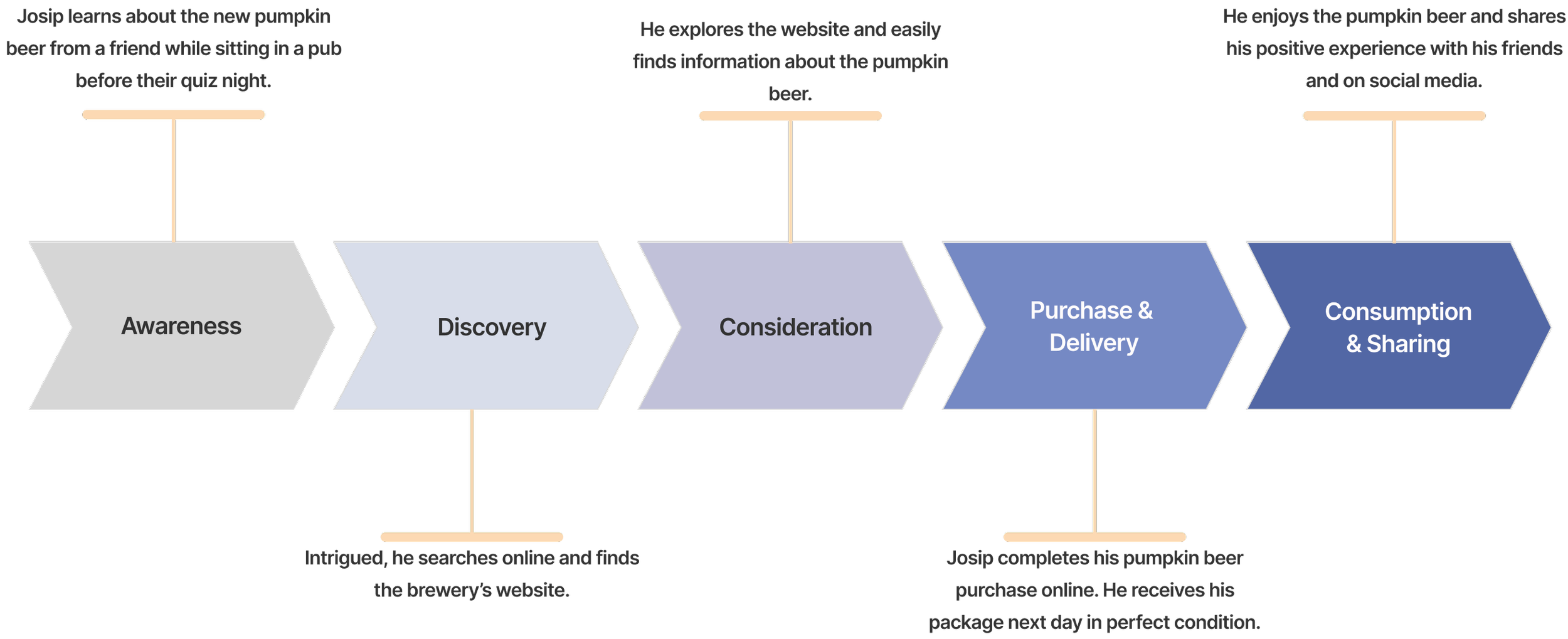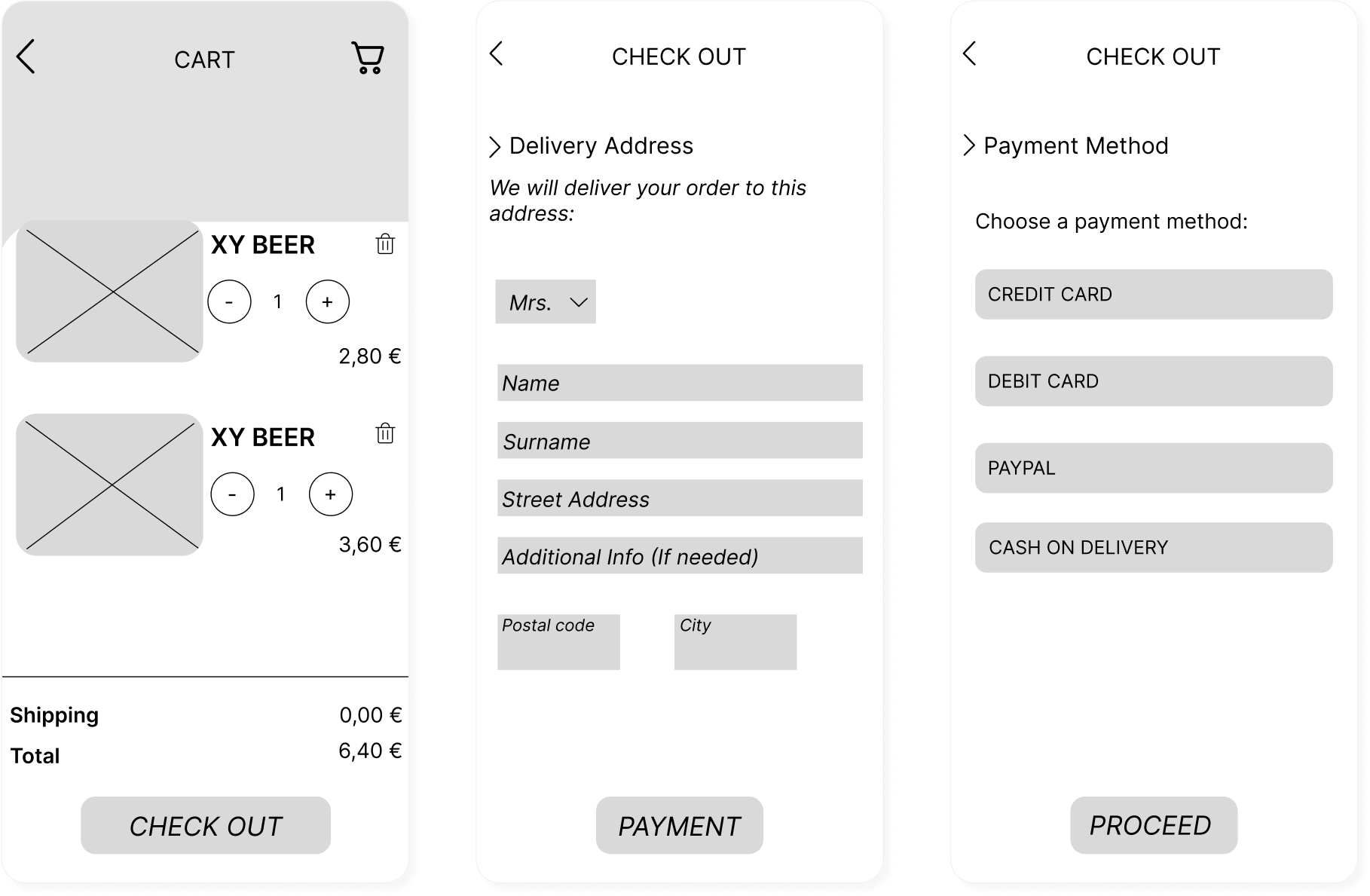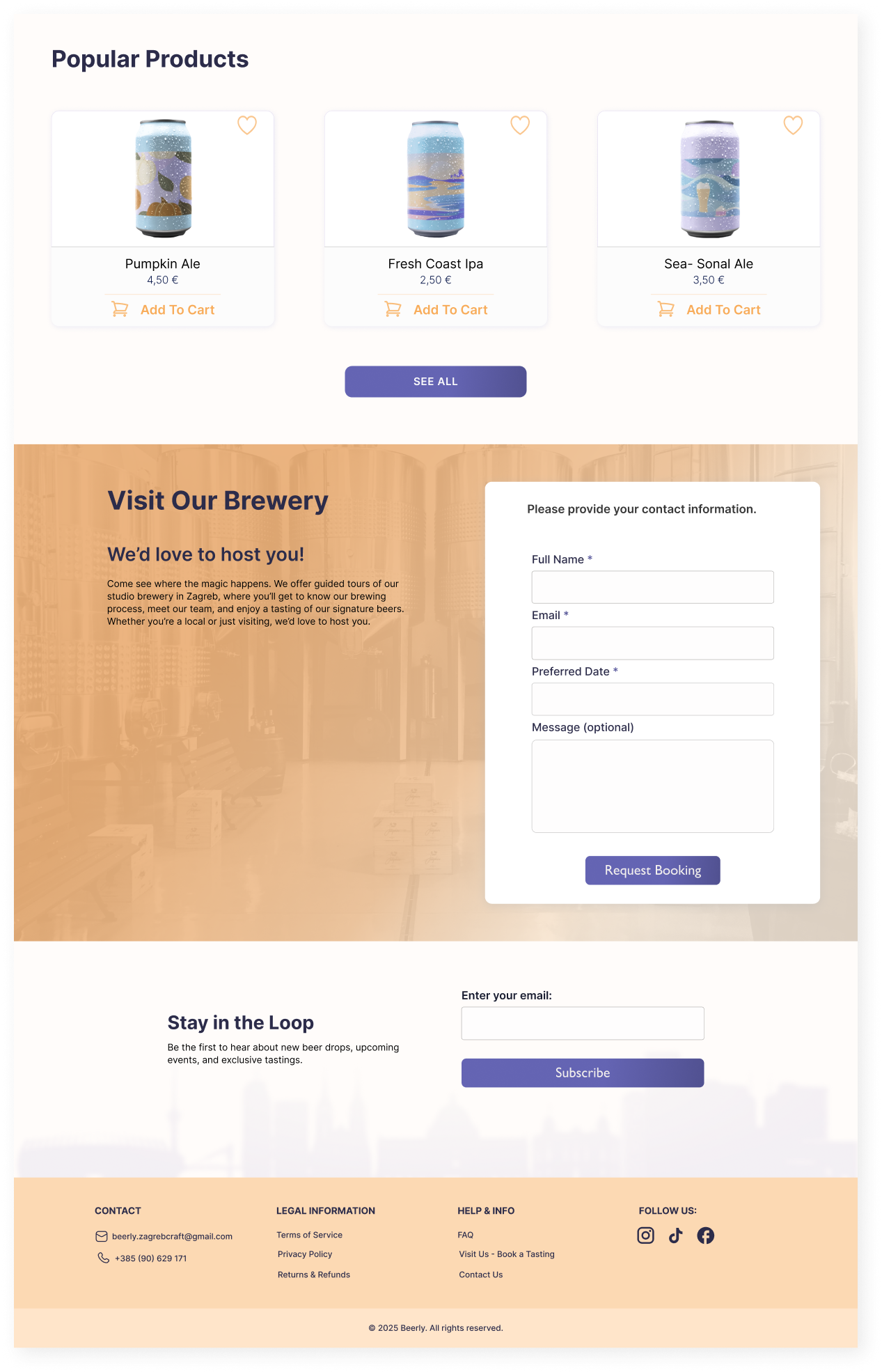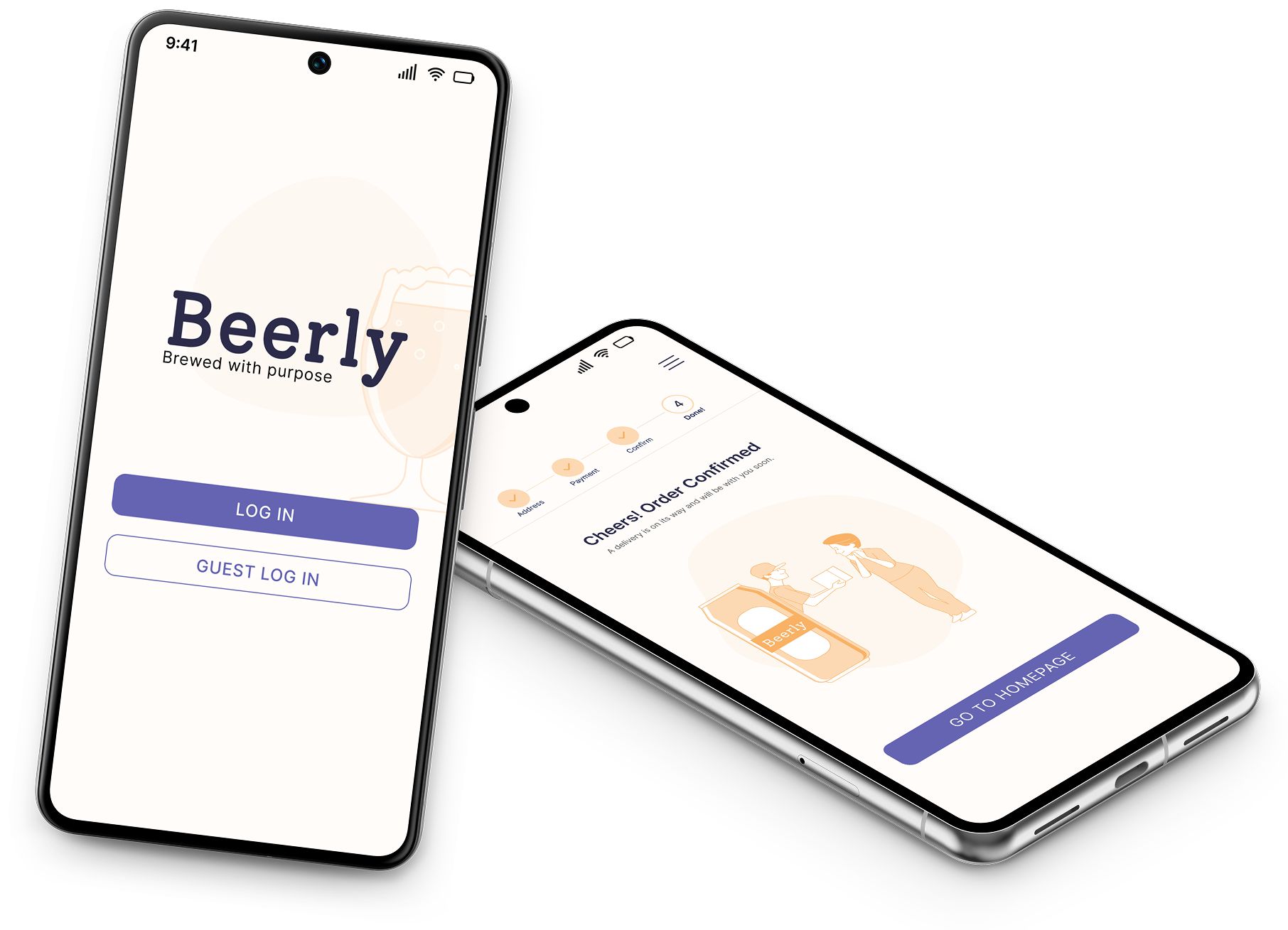UX Case Study
Beerly
Craft Beer App
About the project
Beerly is a conceptual brand and product I developed during my UX design course. The idea: reimagine how craft beer is presented and experienced in Croatia, moving away from usual dark, masculine visuals toward a softer, more fun aesthetic.
The concept centers around a small, independent brewery in Zagreb introducing a seasonal product: pumpkin beer. The target audience: curious, design-conscious beer lovers aged 24- 35, of all genders.
Through user research and market exploration, I set out to discover how people in Croatia feel about craft beer, what draws them to new products, and whether there's appetite for a more design-led, direct-to-door beer brand.
UX research
UX design
Responsibility
Tools
Figma
Canva
Google Forms
The Challenge
A small craft brewery in Croatia wanted to explore the idea of launching a seasonal pumpkin beer but lacked clarity around what their customers actually wanted. They were uncertain about:
How appealing this new product would be
What people value most in a craft beer
Whether there was real interest in doorstep beer delivery
Since the local craft beer scene is still growing, the brewery needed a clearer understanding of their audience’s preferences - not just in taste, but also in design, tone, and convenience.
Goals for this project:
Gauge interest in a new beer offering among younger Croatian beer drinkers
Understand how consumers think about craft beer (flavor, style, experience)
Identify what features - from can design to delivery options - would resonate most
This was a conceptual UX case study developed during my course, but approached like a real-world product brief.
Design Process
Competitor Analysis
Croatia’s craft beer scene is growing, but still highly concentrated in urban areas, especially Zagreb, which acts as the hub for brewing, retail, and distribution. Smaller towns and rural regions have limited access and demand.
Delivery within Zagreb is fast (same-day or next-day), while other areas wait 1–3 days.
Sales channels include supermarkets, delivery apps (Glovo, Bolt, Wolt), and basic webshops.
Physical shops and taprooms thrive mostly in big cities.
Only one brewery currently offers a pumpkin beer, leaving space for differentiation.
From my market research, I found that:
User Research
To understand potential customers and validate the pumpkin beer concept, I conducted both qualitative and quantitative research.
Interviews & Focus Group
Qualitative Research
Through a small number of interviews and a focus group with craft beer drinkers, I uncovered key attitudes toward beer consumption, branding, and new product adoption.
A Diverse but Crowded Market: While Croatia’s craft beer scene is growing, some users view it as saturated and repetitive.
Branding That Stands Out: One brewery stood out consistently due to its playful packaging and storytelling - showing that visual identity can create loyalty.
Cautious Innovation: Participants expressed curiosity toward new beers but often returned to familiar types.
Style Preferences: Lagers, IPAs, and pilsners were named most often for their drinkability.
Home Delivery Potential: Urban consumers showed interest in beer delivery, especially for seasonal products.
Key Insights:
Quantitative Research
Survey (n=222)
I created a structured 18-question survey that received 222 responses - offering a broader look at behaviours and preferences in the Croatian market.
Craft Beer Habits: Most respondents drink craft beer occasionally, not regularly.
Top Choices: IPA and Pale Ale are the most preferred styles.
Pumpkin Curiosity:
69% had never tried pumpkin beer but would like to.
78% said they’d be open to tasting it.
91% didn’t know a pumpkin beer existed in Croatia.Home Delivery:
47% had never ordered beer delivery before but are open to it.
~75% would consider using a delivery service if offered by a local brewery.
Main concerns: high delivery cost, warm beer, fragile packaging, and preference for in-store purchases.
Key Insights:
Ideas & Solutions
Seasonal Pumpkin IPA or Ale
Premium small-batch production
Bold can designs + limited edition feel
Launch via tastings, collabs & local events
Pumpkin Beer Concept
Free / low-cost shipping (esp. first orders)
Protective, upright packaging
Option for chilled transport
Fast delivery within Zagreb
Home Delivery
Eye-catching website & mobile app
Simple shopping + checkout flow
Brewery visit booking integration
Focus on storytelling & design appeal
Online Presence
User Persona
Name : Josip
Gender, age : Male, 34
Location : Zagreb, Croatia
Background
Josip is a math teacher in the upper grades of elementary school. In his free time, he enjoys traveling, hiking, and is a quiz enthusiast. He has an excellent relationship with his colleagues, and every Thursday after work, and sometimes on weekends, they gather at a nearby pub where they relax with beer, participate in quizzes, and discuss events from school that week.
Goals
Enjoy quality time with friends and colleagues.
Explore new beer flavours.
Convenient access to good beer.Support local breweries.
Quote
"I love discovering new craft beers, but it's hard to find ones that truly stand out. I want something unique that I can enjoy with my friends after a long week of teaching."
Motivations
Enjoys the social aspect of beer tasting with friends
Driven by curiosity and love for exploring new flavors
Values quality and authenticity over mass-produced options
Frustrations
Too many choices make it hard to decide
Feels many craft beers are too similar
Worried about delivery quality (warm beer, broken packaging)
User Journey Map
Sketches/ Low Fidelity Wireframes
High Fidelity Wireframes
Website Homepage
The Beerly website was designed with a clean, scroll-friendly layout that immediately communicates the brewery’s brand, product focus, and Zagreb roots. The homepage features a minimalist hero section paired with an illustration of the Zagreb skyline - establishing a sense of place and supporting local identity.
Product sections highlight a curated selection of beers using bold visuals and clear calls to action, ensuring easy browsing and decision-making. The layout emphasizes clarity, spacing, and simplicity to make the experience intuitive and visually engaging across all devices.
I also designed custom label illustrations to complement the brand's personality making each beer feel like a story worth discovering.
Shop & Product Detail Page
Style Guide
Color Palette
Typography
Iconography
HeroIcons
For this project, I used icons from the Heroicons set, which I accessed through the Iconify plugin in Figma. Heroicons offers clean, minimalist icons that aligned well with the Beerly brand’s approachable and modern aesthetic. Their consistency and simplicity helped maintain visual clarity across both mobile and desktop interfaces.
ILLUSTRATIONS
A small number of illustrations were used throughout the project to support the friendly, approachable tone of the Beerly brand. These visuals were created by combining and customizing elements from multiple royalty-free illustration sources. All illustrations were heavily adjusted in style, color, and composition to align with the Beerly visual identity.
Due to the extent of these modifications, the final assets are no longer recognizable as belonging to any specific illustration pack.
Conclusion
While this project required the design of both a website and a mobile app, real-world constraints suggest a more focused approach. In the context of the Croatian craft beer market where most consumers are already comfortable using websites and webshops developing a mobile app might not offer enough added value to justify the cost and complexity.
Instead, investing in a well-designed, responsive website, supported by efficient delivery options and strategic local partnerships, would likely deliver more impact for a small brewery. This project helped me explore how thoughtful design decisions must always balance user needs with business context and real-world limitations.


